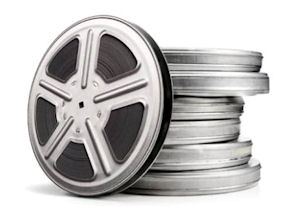A few years ago, I wrote a piece on my website titled The Good, the Bad, and the Ugly of Hollywood Trends. It was a commentary about various things happening with Hollywood that I couldn't help but notice was happening often. I say this because there is now another trend that we are seeing the start of: sequels of movies made two decades earlier. At the time, I didn't think much of it.
But now I feel the need to revisit it again. More and more, we are seeing movies and television shows that are direct follow-ups to what we had seen a long time ago. The question on the minds of many people, including me, is whether they are necessary. Is there any point in revisiting characters we last saw at least 20 years ago? Is it even possible to enjoy a sequel taking place so long after what came before?
Well, that is the purpose of this commentary of mine. I shall now explore the topic to see if I am OK with this latest Hollywood trend or I am ready to say, "Enough already!"
A Word on Terminology
Before I begin, I need to settle one issue. What do you call a film sequel that is released well over a decade after the previous movie, particularly at least 15 or 20 years? As far as I can tell, I don't know if there is a commonly used term for that. After all, it's such a fairly new phenomenon that there hasn't been enough time for a new term to be developed and widely used. But I still need some word or phrase to use here.
At first, I thought about making one up myself. Maybe "long-distance sequel"? Nah, that wouldn't work. Distance is a measure of space, not time. How about "longtime sequel"? Possibly, but it sounds too vague. It might sound like a sequel with a very long running time, not a sequel released way long after its predecessor. Obviously, I need a word that is related to time and suggests a long period of time involved, but it's still hard to think of specific words and pick which one works. For a while, I even settled on "intergenerational sequel" as a term, because the amount of time between movies is enough for the target audience of the original movie to grow older and make room for another younger generation. But it's too vague, and it has too many syllables.
Hence, my next approach shall be to just look around more carefully. At last, I found a term that a few sites used: "legacy sequel." It makes perfect sense. The word "legacy" refers to something that is passed down to the next generation or otherwise left behind for others to see. That could certainly apply to old movies. Therefore, legacy sequels are follow-ups to these old movies. Also, the term has a nice ring to it, and it rolls off the tongue fairly well.
So it's settled. Let's begin talking about legacy sequels.
Starting Off
The first thing I shall do is explore an example of a legacy sequel. Naturally, the best one to start with is the earliest example that, to me, seems to mark the beginning of this trend:
Dumb and Dumber To.
Let's go back in time to the year 1994, when the original
Dumb and Dumber was released. I saw this movie as a teenager with one of my uncles. We both laughed out loud at plenty of the scenes. I had a fun time. I also remember talking about this movie in school with a few friends, sharing what our favorite scenes were. And months later, I saw the movie again on home video with my mother, and she thought it was pretty funny, too.
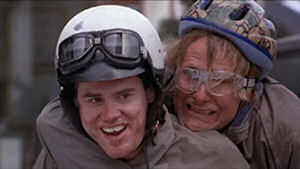
Twenty years later, Dumb and Dumber To hits theaters. This time, I watched it a theater by myself, as someone in middle adulthood. So that meant I had nobody to laugh alongside with, though I did appreciate other people in the theater laughing at some of the same scenes I laughed at. I still had a fun time overall. (Note: The next movie released after Dumb and Dumber was actually
Dumb and Dumberer: When Harry Met Lloyd in 2003, but that's a prequel, not a sequel. Plus, many people prefer to ignore that movie, which I am also doing here for discussion of the topic.)
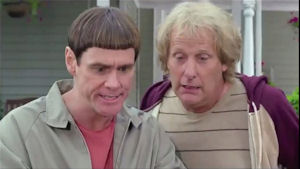
Still, I found myself thinking before, during, and after the movie about several things:
- The Farrelly brothers took a rather brave risk in making a sequel this long after the original movie.
- It's amazing that Jim Carrey and Jeff Daniels in this movie barely look different from two decades earlier.
- Is Kathleen Turner already past the age of 60? My goodness, time flies!
- Even if I never expected a Dumb and Dumber sequel, at least it maintains the spirit of the original.
- Why did the Farrelly brothers make this movie? Nostalgia? Running out of new ideas?
- Would people younger than me, comprising the next generation, really care about Dumb and Dumber To when they were too young, or not even born yet, to see the first one?
Actually, about that last point, I found one example. I read somewhere that actress Jennifer Lawrence is a fan of Dumb and Dumber, and based on her birth date, she was just four years old when the first Dumb and Dumber movie came out. I don't know how old she was when she saw Dumb and Dumber, but whenever that was, she ultimately liked it. Apparently, it was enough for her to agree to a brief cameo in Dumb and Dumber To, though it ultimately got cut out. So I guess it's a good reminder that it's always possible for one to enjoy a film made before they were old enough to be fully aware and appreciative of movies.
Based on Dumb and Dumber To, did I have any strong feelings for or against legacy sequels? At the time, I didn't really care one way or the other. Maybe it's fine to do that kind of sequel. Maybe it's unnecessary. I just simply said, "Whatever."
TV Sequel Craziness
The point at which I began recognizing the emergence of legacy sequels as a serious trend was not another movie following one from over 15 years before. It was a legacy sequel television series. (Some may call it a continuation of a series after a long hiatus, but for my purposes, I'm calling it a sequel.)
From 1998 to 2006, NBC's hit TV sitcom Will and Grace captivated audiences for its portrayal of gay characters. I was surprised to hear that Will and Grace would return in 2017, not just featuring the same principal cast of characters, but also continuing from where the last episode in 2006 left off. All I can say is that I found myself questioning the necessity of this. Now, it is true that I never watch either incarnation of Will and Grace, but I can still have an opinion as a casual outside observer, right?
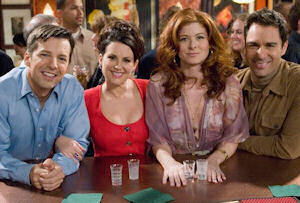

But Will and Grace was far from the worst of it. Another legacy TV sequel came along, one that exploded in controversy.
From 1988 to 1997, ABC's Roseanne was an acclaimed sitcom about a blue-collar family, the Conners, in the American Midwest. This was a show that I never watched, but understand as being praised for its portrayal of more ordinary people, particularly those struggling to make ends meet. I can imagine that if I had more of an interest in the premise, I would love the show.
But when Roseanne was rebooted in 2018, 21 years after the finale of the original series, I could not help but think that elements of the current political climate were arbitrarily thrown in for attention. You have the hats worn by certain characters in reference to the Women's March as well as Roseanne commenting about "taking a knee," in reference to NFL football player Colin Kaepernick protesting during the singing of the national anthem. Like the original show, I didn't watch this one, but I can still have a limited opinion from what little I saw.
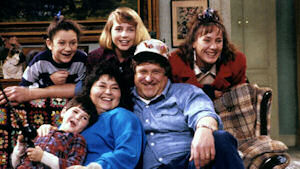
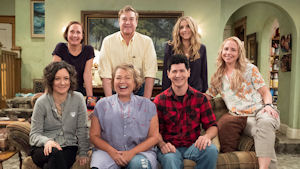
However, the real problems came when Roseanne Barr stirred controversy for offensive comments. Specifically, on Twitter, she made a joke associating a former aide of Barack Obama with a terrorist group and a science-fiction movie (I won't quote it exactly, but you can easily look it up). The tweet was widely condemned as racist, such that the CEO of the ABC network, who is African-American, ultimately had the Roseanne show cancelled. Later, the show continued as a spinoff that excludes Roseanne, called The Conners. All I can say is that it's such a shame that any hopes for a welcome Roseanne sequel were shattered because of the star's actions.
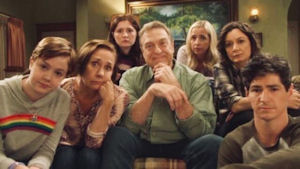
There's one more example I can recall, and it, too, would have a sad conclusion.
From 1988 to 1998, CBS aired Murphy Brown, a sitcom featuring Candace Bergen as a reporter for a TV newsmagazine. Then, in late 2018, Murphy Brown came back, this time with the character working in the new environment of a 24/7 news cycle. In an effort (perhaps a desperate one) to stir interest, Hillary Clinton made a guest appearance as someone interviewing for a job, with lines that referenced her previous work as a secretary (as in, Secretary of State) and experience with emails (as in, the issue of her using a private email server for government email communications). But after all of this, the Murphy Brown sequel/revival/continuation lasted only one season and was cancelled in early 2019.
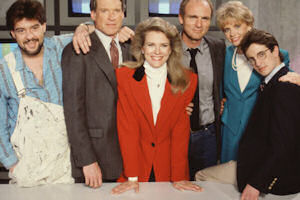

Let me explain why I bring up these examples. First off, there is an obvious pattern regarding the motivation: nostalgia for these great shows of the past and a curiosity about how the same characters would deal with today's world. I can understand each sentiment individually. Some past works of art were great and still are to this day, and one may wonder how certain fictional characters would react to events of today. But is it necessary to combine the two, by bringing past beloved characters into today's time? Why not just create a whole new set of characters for today's world and leave the past characters alone? For the three examples I brought up, why not just create new gay characters, a different 21st-century blue-collar family, and an original set of anchors for 24/7 cable news?
Some people might think that these legacy sequels are a way to avoid having past great works forgotten. I agree that one should not forget about history and the achievements of the past. But as two of the examples above show, there is a risk of ruining the image of a past work. Roseanne and Murphy Brown without these failed direct sequels would be classics, I imagine. To see them as classics now would require ignoring the sequels. Now, it is true that you can do that with many other works, like the Star Wars and Terminator movies (more on that in a bit). Just ignore the sequels you don't like. Still, there's something nice about a film or television series that can be considered a classic and there's absolutely no follow-up to it.
So how do you make sure that a past great work is not forgotten? Here's my suggestion: just remind everyone that past eras of movies and television can provide just as much joy as the current era. Also, people who work in the entertainment industry can periodically share what past works inspired or influenced their own work. That way, fans can be more curious about unfamiliar past works. Similarly, fans of movies and TV can share their experiences of watching the classics and get others to try them out, too. I think this is sufficient to keep the classics alive, without resorting to legacy sequels.
Legacy Sequels of Franchise Films
Let's get back to legacy movie sequels, shall we? I'll proceed by talking about a major franchise.
There are now three Star Wars trilogies: the original trilogy (
A New Hope,
The Empire Strikes Back, and
Return of the Jedi), the prequel trilogy (
The Phantom Menace,
Attack of the Clones, and
Revenge of the Sith), and the sequel trilogy (
The Force Awakens,
The Last Jedi, and
The Rise of Skywalker). Obviously, the movie that is a legacy sequel is The Force Awakens, which was released in 2015 a decade after the end of the prequel trilogy and, more importantly, 32 years after the end of the original trilogy. Furthermore, the original trilogy's principal trio of Luke, Leia, and Han return as supporting characters. Without them, it would simply be a wholly new Star Wars series set many years after the previous ones.
This is where I have mixed feelings. I'll accept whatever events occur with the sequel trilogy, but part of me still wonders if Return of the Jedi should have been left as the definitive conclusion for the original trilogy characters. The way it ended provided a heartfelt yet satisfying finale to a phenomenal sci-fi trilogy. If Star Wars were to continue with new characters and conflicts, why not just leave Luke, Leia, and Han out of it? By bringing them back, we now have to keep watching to see their fates that are ultimately very different from what we saw at the end of Return of the Jedi. Undoubtedly, some fans may be dissatisfied about what was done to those beloved characters.

Here's another sci-fi franchise with a legacy sequel.
Terminator: Dark Fate may have been released only a couple of years after
Terminator Genisys, but James Cameron ignored every Terminator movie between
Terminator 2: Judgment Day and Terminator: Dark Fate. Consequently, Terminator: Dark Fate is a direct sequel to Terminator 2 released 28 years later. I did enjoy Dark Fate, in fact more than I expected. The big question is whether this legacy sequel was necessary.
My feelings are similar to that of Star Wars. I'll accept the fictional events taking place long after the original films. When I take a step back, I notice how the returning main character and actress, Sarah Connor played by Linda Hamilton, appear less glamorous than before. The decision to bring back an established character from long ago was likely a marketing gimmick. Same for Arnold Schwarzenegger playing another android, though different from the previous two. Maybe Terminator: Dark Fate could still work just as well if, instead of actually bringing back Linda Hamilton and Arnold Schwarzenegger, their characters are referenced in dialogue and images, but not live characters. It would still serve the purpose of connecting the new film with the past films, but without the seemingly arbitrary marketing gimmick.
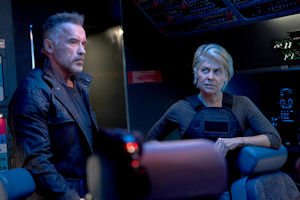
I'll throw in one more quick example of a franchise legacy sequel: Halloween. That is, Halloween in 2018 released 40 years after Halloween in 1978, both starring Jamie Lee Curtis. Yes, there are other Halloween movies in between, but regardless of what gap between films you're looking at, it's another example of the principal character and actor coming back many years later to continue the series. In this case, viewers now wonder if Michael Myers will be finally killed once and for all.
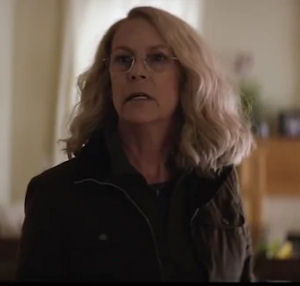
When I look at these three examples of legacy sequels, I can see how it may be fun to re-explore a franchise and introduce it to newer generations. But I say that it can be done without bringing back the same characters and actors. Just have a new set of characters who deal with the same or similar threat, with the previous characters mentioned in passing. Of course, this may work better for a franchise that centers on a world, like Star Wars and Terminator, rather than specific characters, like Jamie Lee Curtis in Halloween. Basically, filmmakers should ask themselves if it is necessary to bring back old characters and actors for any reason. If there isn't any good reason, don't.
Legacy Sequels for Single Films
Obviously, it's not just big movie franchises and series that may have legacy sequels. Even a single film may have a sequel made more than a decade later. For the sake of not beating the topic to death, I'll just focus on one example I've seen.
In 1996, the sci-fi movie
Independence Day was a blockbuster hit, featuring eye-popping special effects (who can forget the spaceship destroying the White House?), fun action, an ensemble cast, and a very good story. I loved the movie when I saw it the first time, so much that I saw it again multiple times after that. I also appreciated how it was a self-contained story from beginning to end, so that it ended on a high note and no sequel was needed.
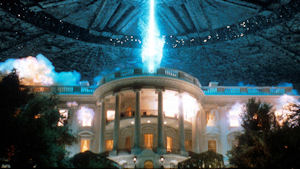
So imagine my surprise when
Independence Day: Resurgence came out in 2016. Now, I never said that the sequel shouldn't have been made. In fact, I still liked the movie, though slightly less than the 1996 predecessor. But while watching the movie, I couldn't help but focus on the things that have changed over 20 years: the Will Smith character not in the movie because he is killed off, Vivica A. Fox now a hospital worker instead of an exotic dancer, Bill Pullman as former President Thomas Whitmore who is losing his mind, and a bunch of technological advances thanks to the alien technology left behind from the War of 1996. Just like Star Wars, I didn't try to resist the new material. I just went with it.

But the question still lingers: has Hollywood truly run out of ideas?
Going Beyond the 1980s (and I Mean REALLY Going Beyond the 1980s!)
Most of the examples of legacy sequels thus far follow previous works that were completed in the 1990s. You may think it's too weird to have a sequel to something that defined and was confined to an older decade, like the 1980s. Well, think again.
One movie series that is associated with the 80s is Rambo. There's First Blood (1982), Rambo: First Blood Part II (1985), and Rambo III (1988). Believe it or not, there are TWO legacy Rambo sequels. There the 2008 Rambo movie simply titled Rambo, released 20 years after the third movie. Then there's Rambo: Last Blood in 2019, marking the end of the series that initially lasted six years but is now a 37-year-long series. It's rather remarkable to see how much Sylvester Stallone has aged when you compare First Blood and Rambo: Last Blood.
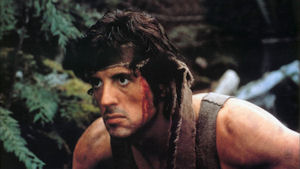
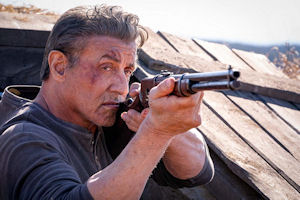
And you know what other 80s movie is getting a sequel many many years later? Top Gun. Yeah, no kidding. After the original 1986 hit, someone had the idea of greenlighting a sequel to bring it back to life. The result: the upcoming Top Gun: Maverick, to be released sometime in 2020. And yes, Tom Cruise will be in that one, just like he was in the first one.

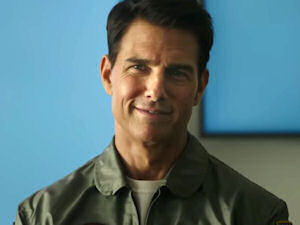
As of now, I have not seen Top Gun or any Rambo movie. But even I wonder if the old movies should've just been left alone in the decade they had originated. The same thing goes for the next example: a legacy sequel to a movie in the form of a web series.
Remember
The Karate Kid in 1984? Well, if you're a fan, you'll recall that it had two sequels in 1986 and 1989 that also starred Ralph Macchio and Pat Morita, the 1994 sequel The Next Karate Kid with Hilary Swank, and the 2010 reboot with Jaden Smith and Jackie Chan. Now go ahead and add the YouTube Premium web series Cobra Kai, which brings back Ralph Macchio and William Zabka playing the same rival characters in the original 1984 movie. Basically, the rivalry is back on after Zabka's character opens his own dojo, similar to the one he was part of three decades earlier.
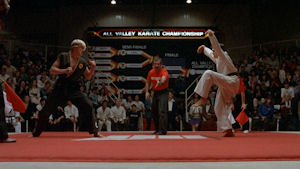
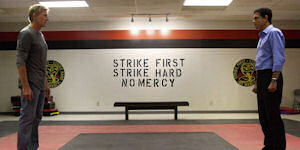
Cobra Kai is another thing I haven't seen as of now. (I love movies and select TV shows, but who has the time these days?) Again, I bring it up to illustrate how far this trend has gone, for better or for worse. Whether it's needless or cool is really up to each individual viewer.
Back to Crazy Sequel TV
To further illustrate the trend of legacy sequels, let's turn back to the world of television. I have three more examples to point out, all following shows that I had watched in the late 1980s and/or early 1990s.
Remember Full House, the family sitcom about a household consisting of a father of three girls named Michelle, Stephanie, and D.J., plus a few other related family members? The one with the Olsen twins, Mary-Kate and Ashley, playing the youngest girl Michelle? Yeah, that show. If you watched it, you may recall how it's a show about different family and life situations at any stage in a person's life, best illustrated by the three daughters of different ages. It was good enough that it ran on ABC from 1987 to 1995.
Just when you think Full House would forever remain an 80s/90s show defining that particular generation, Netflix comes out with the follow-up sitcom Fuller House. This time, D.J. is a widowed mother of three boys who, along with sister Stephanie and best friend Kimmy, lives in the same house she grew up in. Needlessly to say, I haven't watched it, but two questions came to mind. One, who is the intended audience: the nostalgic older audience or the younger audience who were too young to remember or see Full House? Two, what do you hope to achieve with this show?
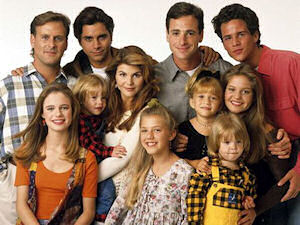
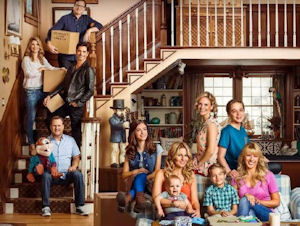
It's not the only ABC sitcom to have a follow-up. Remember Boy Meets World? That's the show following an adolescent boy named Cory, played by Ben Savage, who has a best friend named Shawn and a love interest named Topanga. It ran from 1993 to 2000. Over a decade later, Girl Meets World aired on the Disney Channel from 2014 to 2017, centering on the daughter of Cory and Topanga. Again, didn't watch it, but similar questions apply.
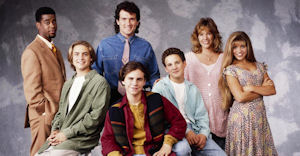
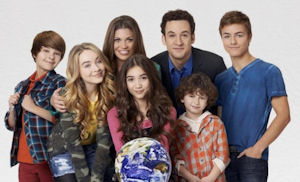
I have one more example to briefly comment on. It's not a new show that already started airing or even started going into production, but it still pertains to my rant about legacy sequels.
It was announced in late 2019 that
Saved By the Bell, NBC's teen high school sitcom from 1989 to 1993, will have a new continuation series. The only thing confirmed is that Mario Lopez and Elizabeth Berkeley, who played A.C. Slater and Jesse Spano respectively, will be on board. Mark-Paul Gosselaar, who played Zack Morris, might also be on board. Time will tell if anyone else, like Dustin Diamond, will also join the cast. This just makes me wonder again why studio executives don't bother with the option of creating a wholly original series about the same topics (e.g., school life). It takes work, yes, but that's no excuse for the lazy approach of reviving something very old.
Really?! There Will Be Sequels to 90s Films?
I'll say it again. Legacy sequels are getting out of control! Even after describing ones that have come into existence, I cannot ignore the ones that are forthcoming. There are several I noticed that are sequels to 90s films. Because of my annoyance with this topic, I shall brush over them rather quickly.
Sometime back, I heard that Hocus Pocus was getting a sequel many many years later. This was a Disney live action film from 1993 starring Bette Midler, Kathy Najimy, and Sarah Jessica Parker as witches. I never saw it, and I cannot imagine why Disney would even think of making a sequel to this relatively lesser known film. Then again, I suppose anything is possible since they now have the Disney+ streaming service, which provides an opportunity for everyone to really go back and revisit the past.
Then there's Bad Boys for Life, which is a sequel to Bad Boys 2 in 2003 and Bad Boys in 1995. Whichever predecessor you look at, it's hard to believe how much Martin Lawrence and Will Smith look different appearance-wise. Lawrence is chubbier this time around, and Will Smith is much older now, though he still looks tough. It's another reminder of how much I've changed over 20+ years.
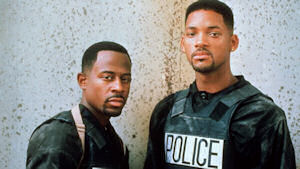

Meanwhile, remember the 1995 comedy
Friday, and its sequels Next Friday in 2000 and Friday After Next in 2002? Now there will be another in the series, presumably the final entry, given that it is tentatively titled Last Friday. Then there's the planned third Bill and Ted movie called Bill and Ted Face the Music, after their Excellent Adventure in 1989 and Bogus Journey in 1991. Now, to be fair, there is one longtime comic duo who have a new movie that might interest me a little: Jay and Silent Bob, played by Jason Mewes and Kevin Smith. Their Jay and Silent Bob Reboot may be a chance for them to make us laugh even as they are much older than when they first appeared in
Clerks in 1994. Who knows if newbies will enjoy them like the old timers?
So When Is It OK to Do a Legacy Sequel?
The purpose of this commentary isn't just to summarize the legacy sequels I've been seeing and hearing about. It's also to decide whether they are necessary and welcome or just a waste of everyone's time. Looking what I have described so far, let me ponder and figure out the value of these kinds of sequels.
Of all the examples I've listed so far, the Star Wars sequel trilogy of Episodes VII through IX seems to be the most acceptable legacy sequels. That's because the franchise is so huge that it's easy for youngsters to discover Star Wars, whether on their own or from an older generation of fans. After all, there are not one but two generations of older Star Wars fans, who had been youngsters either during the release of the original trilogy or the prequel trilogy. With all of this, the sight of Luke, Leia, and Han in middle age in Episode VII is likely to not make the kids feel lost. Many kids have seen Star Wars movies that were made when they were only a few years old, or even before they were born. And there are examples of families in which the kids and the parents (and maybe the grandparents, too) are Star Wars fans. With that, I say that Star Wars is an example of a franchise that is acceptable to have legacy sequels.
What about other movie franchises that are not as big, though still recognizable? Well, it'll depend on the franchise and the degree to which interest in the films of the franchise has been kept alive over the years. The Terminator movies, for instance, seems to be of interest even to young movie lovers born well after the first two movies in 1984 and 1991. So there's a chance that some younger Terminator fans may be eager to see Terminator: Dark Fate because of Linda Hamilton's return as Sarah Connor. Legacy sequels for other franchises may work as well, but again, it depends on the franchise.
So what about the other examples I talked about above? Well, one thing is obvious. The original films haven't really been kept alive ever since being released to the public for the first time. The result: the assumption that there is no interest in filmmakers to produce continuations and that the audience is not demanding continuations. For all intents and purposes, the movie or television series is dead. Time to move on and find other sources of entertainment. This is why there is astonishment when legacy sequels get announced. And when they come out, who is the intended audience: the old timers who comprised the original audience, or these old timers plus the next generation?
At this point, I think I can answer the question of when it is OK to make a legacy sequel. Ladies and gentlemen, I would like to present the following list of suggested criteria that ought to be followed in order for a legacy sequel to likely be more acceptable than not. They aren't hard rules, but rather just some guidelines to consider.
Anthony's Suggestions for Legacy Sequels
Any film or television series that is a legacy sequel, featuring the same major characters played by the same actors more than 10 years after their appearances in the predecessor, should:
- Pertain to a past work whose appeal not only transcends time but also manages to reach future generations
- Excite the newer younger generation as much as the older generation who were the original target audience
- Provide a new storyline without rehashing old material or ruining the image of the main characters
- Be made well, so that even the most picky fans will accept and enjoy it
- Not be made mainly for financial reasons, like a desperate need to produce something because of a shortage of ideas
I hope this list gives Hollywood a good idea of what makes a potentially good legacy sequel and what doesn't. Not that I expect them to read it, but hey, it's still nice to put my thoughts down.
A Conversation With a Friend
While writing this commentary, I had a conversation with a friend whom I chat with from time to time about pop culture, mostly about movies and video games. I told her about how I was writing this commentary about legacy sequels. She, too, thinks this trend is out of control. While I won't go into detail of everything discussed, I'll share this one observation of hers.
She told me about her thoughts on the trailer for Ghostbusters: Afterlife. She described it to me because I had not seen the trailer myself. Apparently, this movie is a sequel not to the 2016 all-female
Ghostbusters, but to the original series from the 1980s. In the trailer, a few kids find old relics of the Ghostbusters and learn that they are descendants of Egon Spengler, one of the original Ghostbusters. My friend shared this because it's one of the few legacy sequels that she might be interested in, mainly because it's doing something fairly new.
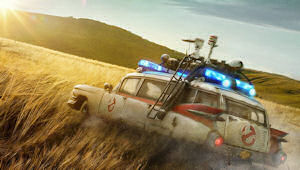
I bring it up here because it is relevant to my suggestion for legacy sequels about not rehashing old material. Time will tell if Ghostbusters: Afterlife will pass my test for good legacy sequels.
One Kind of Legacy Sequel I'm Totally Fine With
We've talked about legacy sequel films and TV shows. There's another kind of legacy sequel I've seen much less often, but it's something I don't really mind: the legacy sequel commercial.
A while back, Google released a humorous commercial in which Macaulay Culkin reprises his role of Kevin McAllister from
Home Alone. Remember the scene where he, as a 10-year-old boy, applies aftershave to both cheeks and then screams (with an expression like Edvard Munch's painting "The Scream")? Well, the commercial shows the same character, now a man, enjoying his time home alone like many years before. Just seeing this actor reprise something from almost 30 years ago is funny to watch. And because there's no reason to consider this kind of thing a part of the same canon as the original movies, it's totally fine to have this kind of legacy sequel for laughs.
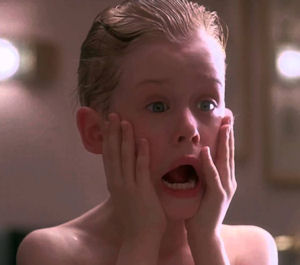
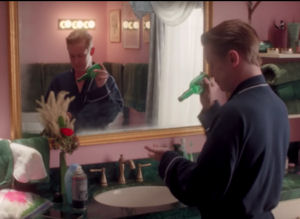
Then there's the Xfinity commercial featuring not only E.T., the alien from that 1982 movie, but also the same actor who played Elliott, the young boy befriending the alien. He is now a man with a family of his own. So imagine this commercial where E.T., after having gone home, comes back to Earth and unexpectedly encounters Elliott and his kids. Then there is bonding among all of them. Just like the Home Alone Google commercial, there's no need to worry about this ruining the canon of E.T. because the commercial is not part of it. Again, just enjoy it for the laughs.


So far, I haven't seen any more commercials like this. If there will be, I wonder what the next one will be about. But I digress.
A Couple of Legacy Sequels I'll Forgive
Looking at other movies out there, I realize that there are other legacy sequels I've seen that I like. Most of these were released before the crazy legacy sequel trend we're seeing. Others were released during the trend, but seem just fine to me, which is why I didn't recall them right away. So let me go over some of these enjoyable legacy sequels that I almost forgot about, as a way to illustrate that, perhaps, not all legacy sequels are terrible.
First off,
Indiana Jones and the Kingdom of the Crystal Skull. It came out in 2008, way before the legacy sequel craziness. Was it necessary for this movie to get made? No. But was it enjoyable? I thought it was. For one thing, it was nice to go from one contemporary time period to another, from the 1930s to the 1950s, without losing the spirit of the Indy films. And it's possible that plenty of youngsters discovered Indiana Jones, so a movie like this could appeal to fans old and new.
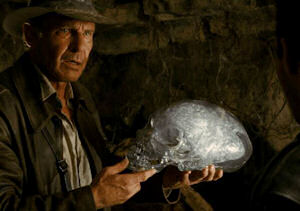
Same goes for
Jurassic World as a long-time follow-up to
Jurassic Park. What I loved about Jurassic World is how it's a fully realized Jurassic Park. In the original movie, the dinosaur theme park was not yet open to the public and already a few inside visitors got the fright of their lives. Now, a very large version of the park is open to crowds of visitors, so imagine the mayhem when dinosaurs get loose. While I won't say that Jurassic World is better than Jurassic Park, I still like the concept.

Here's an example of a legacy sequel that didn't really trigger groans from many people because the series is already intergenerational to begin with:
Toy Story 3, which came out 15 years after
Toy Story 2. This is also a great example of how this movie still gave us some new stuff so that it isn't mostly a rehash of a previous movie. So if you want an example of a good legacy sequel, think of Toy Story 3.
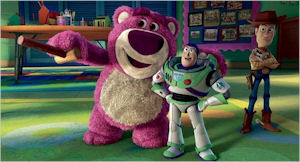
I have two more examples of legacy sequels that I enjoyed. Both were released more than 20 years after its predecessor, and while the original film isn't widely viewed as much as the biggest franchise films, the title in the sequel is still recognizable because the original was notable at the time of its release.
Mary Poppins Returns in 2018 is the sequel to the original
Mary Poppins in 1964. It's a sequel because the two Banks children in the original film are now grown adults, one of whom has a family and is falling into debt. The film also features the kite that was in the original movie. But even if you haven't seen the original film, this one can stand alone. It's basically another fantastical adventure with the titular character, taking the young children on a ride they won't forget. Julie Andrews doesn't return to reprise her role as Mary Poppins, but Emily Blunt does a nice job being the next actress to play the character. Kids today may appreciate this one, even if they have not yet seen the 1964 original.
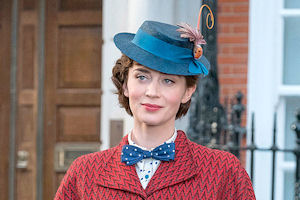
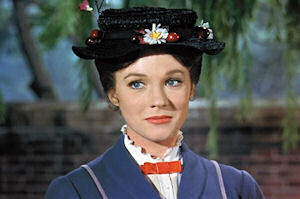
The other legacy sequel that works in my opinion is
Wall Street: Money Never Sleeps. This movie, released in 2010, is the follow-up to the 1987 film
Wall Street. The only connection between the two movies is Michael Douglas as Gordon Gekko. In the 1987 movie, Gekko was the epitome of Wall Street greed. In 2010, Gekko gets out of prison and tries to reconnect with his daughter, played by Carey Mulligan, as she is in a relationship with the other main character played by Shia LaBeouf. The big reason this legacy sequel is not an unnecessary movie is because Wall Street in real life has changed over the years, and the economy was different around the 2008 recession versus around the crash in the 1980s. It's not a bad idea to reexplore the movie Wall Street in the modern era.
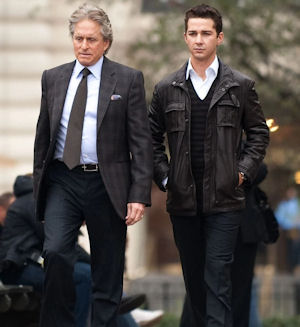

So after I've ranted so much against legacy sequels, I guess I forgot that there are some that work.
What About Legacy Prequels?
To wind down this commentary on legacy sequels, I thought I'd quickly touch on a related question. What about legacy prequels? The big reason legacy sequels are an issue is because the youngsters who haven't seen the original film may not be inclined to watch the sequel. But what if, instead, you have a movie that is connected to a movie released more than a decade before, but the new movie is a prequel about events occuring before the events of the original movie? Would newer audience members want to see the new prequel and then watch the original afterwards?
I supposed I'm getting way ahead of myself here, because we really haven't seen many legacy prequels. The only legacy prequels I can think of are the Star Wars prequel trilogy of Episodes I, II, and III and the spinoffs Rogue One and Solo, but they're part of a franchise that itself spans multiple generations of audiences. The question I raise applies to movies that aren't big franchises. For that, there's one example of a possible legacy prequel that was announced not too long ago.
Remember the 2001 police drama
Training Day, with Denzel Washington as a corrupt cop named Alonzo Harris? Well, they just announced a prequel centering on this character when he was younger, during the 1992 Los Angeles riots. If you never watched Training Day but the prequel intrigues you enough, would you go see that first and then Training Day?
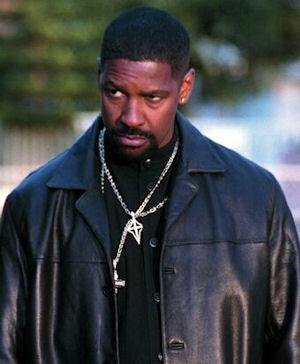
Again, it's mainly speculative, but don't be surprised if the question of legacy prequels comes up again and again in the future.
I Say Enough Already! (But It's Fine to Do It Sparingly)
So my overall take on legacy sequels (and prequels) is this. Unless you have a very good reason to make a legacy sequel, like when it's for a major franchise or when the original characters and concepts are still very relevant in a changed world (which is true only in some cases, not all), don't do it. Don't make a legacy sequel or prequel just because you can and you want to make money. Otherwise, it'll suffer the fate of many that I've described above: being criticized for being unnecessary. And along those lines, there are plenty of works in movies and television that don't have legacy sequels or prequels or really need them, and to even think about that path would draw ire from fans. For example, don't even think about reviving the TV sitcom
Seinfeld. Ever.
Bottom line: always try to be original without rehashing so much.
OK, I am done ranting about this topic. As much as I sound like I'm complaining, do understand that I genuinely had fun taking a closer look at legacy sequels. Thanks for reading along and staying with me until the very end. I hope you enjoyed thinking about legacy sequels, too.
